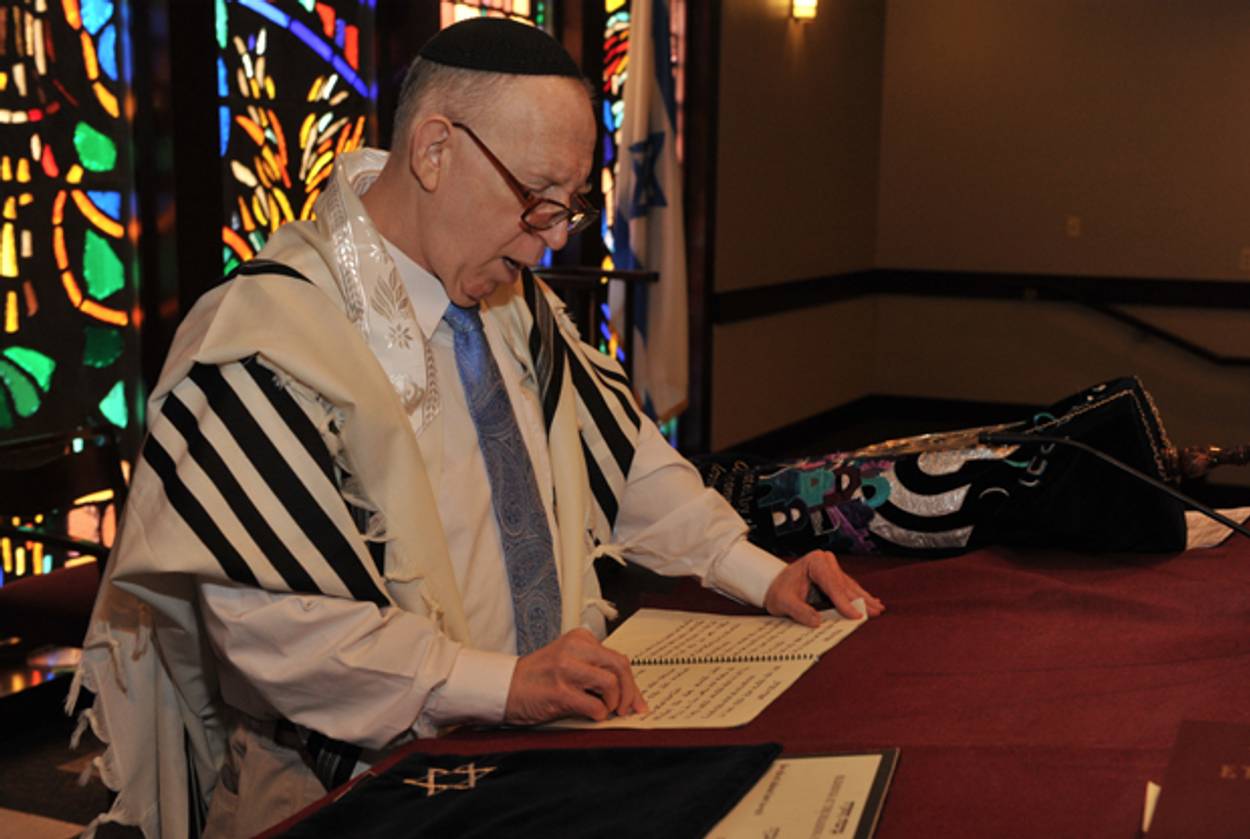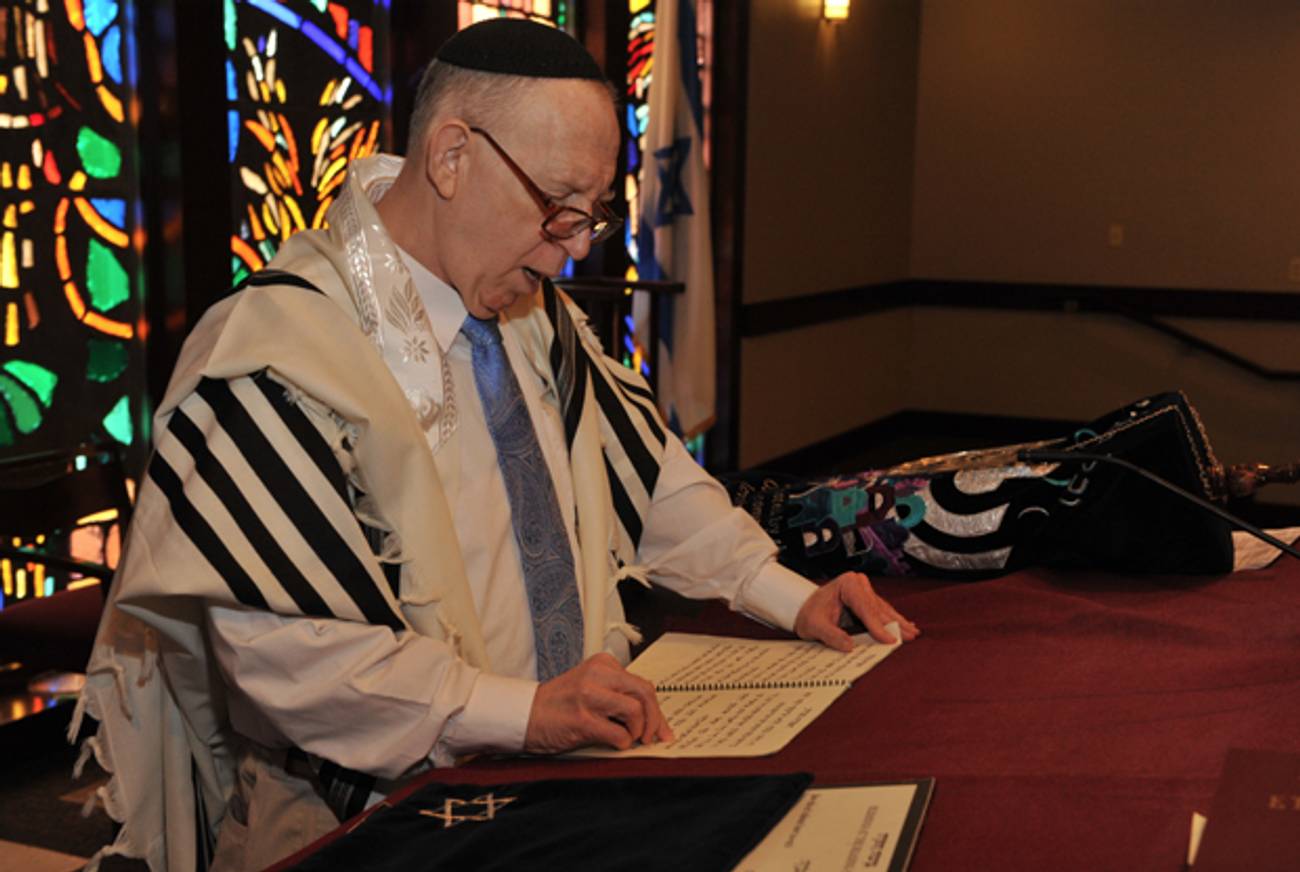At 62, Deaf Man Will Celebrate His Bar Mitzvah
A unique learning process helped Joel Scott Strauss fulfill his lifelong goal




Bar mitzvah boys routinely spend months preparing for their ceremonial inaugurations into the Jewish adult community. For Joel Scott Strauss, the process has taken 62 years.
Strauss, a resident of Suffern, N.Y., has been deaf for most of his life. On Saturday morning, April 5, he will celebrate his long-awaited bar mitzvah during morning services at the Orangetown Jewish Center in Orangeburg, N.Y.
For Strauss, this dream has been years in the making. Though he was not born deaf, his condition progressively worsened as he grew up. At eight years old, he was unable to speak in complete sentences. His parents, who had only recently discovered that their young son suffered from a hearing disorder, decided not to add bar mitzvah lessons to his growing list of challenges.
But Strauss, who saw both of his siblings celebrate their bar and bat mitzvahs and has watched countless young men ascend the bimah over the years to proudly accept the mantle of adulthood, never lost sight of his goal to one day do the same.
With the help of fellow community member Allan Cohen, that day has come. Cohen, who is not a teacher by training and had never before worked with the deaf, spent well over a year helping Strauss prepare.
“We started together with the aleph bet,” explained Cohen, who detailed the learning process he developed with Strauss. “Scott still remembers many of the brachot he was able to hear earlier in his life,” explained Cohen. Strauss has a special affinity for reciting the Shema. “The progress began with the sounds he maintained from memory—we translated those memories slowly into words, and then carefully into letters.”
Though Strauss won’t be able to hear his own bar mitzvah service, his ceremony will include all of the traditional ritual elements. On Saturday, Strauss will be called up to the bimah, take out the Torah—with help; he can’t lift the heavy scroll on his own—recite the blessings, and read half of the weekly Torah portion.
“He wants candy thrown at him too,” Cohen said, laughing, referring to the custom of throwing soft candies at the bar mitzvah boy after he has completed reading the Torah portion.
Strauss, who will celebrate Saturday’s service with family and friends, opened up about the process of learning to read, and explained why he finally decided to take the bar mitzvah plunge.
“The greatest challenge was my fear of learning Hebrew, and overcoming my feelings of self-doubt,” Strauss wrote in an email. “For years I wanted to become bar mitzvah, but for some mystical reason, I was only able to learn now.”
Strauss also shared some words of advice. “Keep on trying and always believe in yourself,” he wrote. “If you want something badly enough, you can do it.”
Students at the Orangeburg Jewish Center all create a “Mitzvah Project” to accompany their bar or bat mitzvah. Strauss is no different. His project will be reaching out to other deaf members of the Jewish community in the hopes of helping them embrace their Judaism. Together, he and Cohen will help others who are hearing impaired participate in Jewish learning. They hope to facilitate another bar or bat mitzvah someday in the future.
How do you say mazal tov in sign language? Cohen demonstrated: “Clasp your hands together, raise them high, and shake once.”
Hannah Dreyfus is an editorial intern at Tablet.